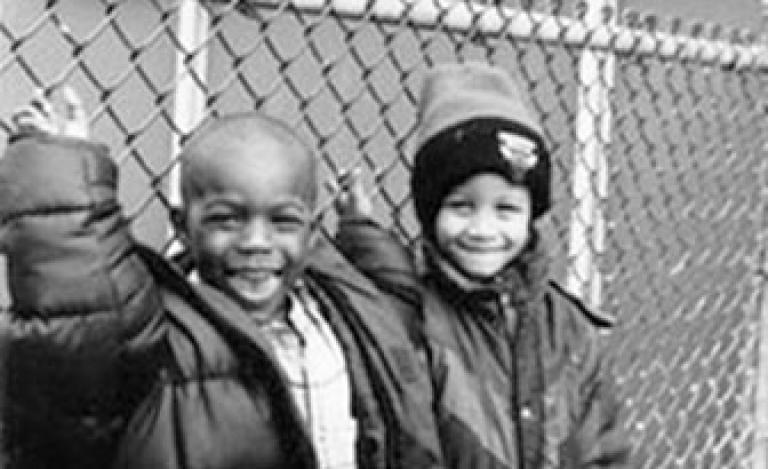News
New research links high-quality early childhood education to higher postsecondary graduation rates for children who have experienced trauma
New research released this summer from a 30-year study shows that individuals who experienced childhood trauma and adversity — known as adverse childhood experiences (ACEs) — had improved long-term educational outcomes when they had also participated in a comprehensive early childhood education program.
The Chicago Longitudinal Study, directed by Dr. Arthur Reynolds at the University of Minnesota’s Institute of Child Development, has followed a cohort of children who entered the Child-Parent Center (CPC) preschool in Chicago in the 1980s. The outcomes of these children, who are predominantly Black and born in high-poverty neighborhoods, were tracked for 30 years to assess a wide range of life course and well-being measurements. This study, published in JAMA Network Open and led by Alison Giovanelli of the University of California, San Francisco, contributes to the evidence that young people at the highest risk for poor outcomes benefit from receiving access to high quality early childhood education. The CPC Preschool to 3rd grade model was established by the Chicago Public School District to provide comprehensive educational and family support services, primarily in low-income neighborhoods.
In this study, participants in the CPC who had experienced ACEs in early childhood, including abuse, neglect, or household dysfunction, attained either an associate’s or bachelor’s degree at rates similar to the CPC participants who had not experienced ACEs.
In a comparison group of children who had access to usual early childhood services, the children who experienced ACEs had lower rates of postsecondary education graduation than their peers without ACEs. Among ACEs-impacted participants, 22.4% of CPC graduates earned a college degree compared to only 5.6% for the comparison group enrolled in the usual early childhood services. This 4-fold improvement far exceeded the improvement found for CPC graduates vs the comparison group without ACEs (19.9% vs 17.1%; 16% improvement).
“Comprehensive [early childhood education] programs, such as [the Child-Parent Center] can foster resilience and mitigate the effects of early adversity,” the study said. “Such interventions are an established, evidence-based, scalable tool to level the playing field for the most vulnerable children.”
The opportunity to participate in the high-quality CPC preschool may have offset the negative impacts of childhood adversity. The study also examined an expanded set of ACEs, including neighborhood violence, family conflict, death in the family, and foster care or out-of-home placement.
The other researchers on the study were ICD PhD alumna Christina Mondi, now of Brazelton Touchpoints Center at Harvard Medical School, and Arthur Reynolds and Suh-Ruu Ou, of the University of Minnesota’s Human Capital Research Collaborative. Under Reynolds, the CPC program has been expanded in four school districts, including St. Paul, Minnesota, and Chicago, Evanston, and Normal in Illinois.
The study was supported by the National Institute of Child Health and Human Development, the Doris Duke Charitable Foundation, and the Bill & Melinda Gates Foundation.
To read the open access study, click here.
